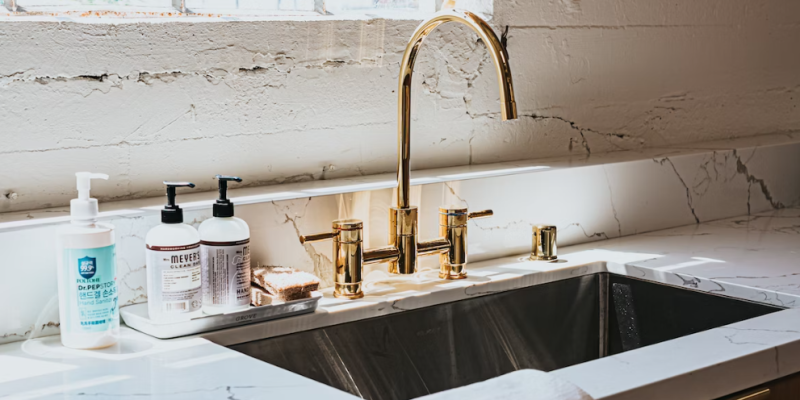Whether you’re caring for a home or renovating a business, your mind’s probably on interior decor, not the building’s foundation. If you want to keep all of your hard work as pristine as possible, though, you’ll need to keep your building’s roots in mind.
 Photo By: Kurt Baum Architects
Photo By: Kurt Baum Architects
Foundation leaks can have a serious impact on your renovation schedule, not to mention on the changes you’ve already initiated. What can you do, then, to ensure that your renovation goes smoothly if you have a foundation leak on your hands?
What Causes Foundation Damage?
A home or building’s foundation doesn’t crack after one traumatic event – unless, of course, it’s in an area that sees frequent and violent natural disasters. If you have a foundation crack on your hands, it’s more likely that your foundation’s been under severe stress for an extended period of time. Sources of that stress can include but are not limited to:
- Heavy rain
- Shifting soil
- Your foundation’s response to the weather
- Your foundation materials
- The nearby trees
Signs of a Foundation Leak
That said, the signs that indicate a leaking foundation are similar to the signs that indicate a leaking basement. How can you tell the two apart? Foundation leaks and cracks tend to have more of an impact on the structural supports keeping a building upright. If you suspect that your foundation may be leaking, you’ll want to keep an eye out for the following signs inside of your home:
- Bowing walls
- Shifting floors
- Gaps at the joints of your foundation
- Sticking doors
- Foggy windows
- Water-damaged belongings or furniture
- Mold
That said, if you let a foundation leak go unattended for too long, the outside of your building or home will start to show signs of extensive water damage. These signs include:
- Vertical cracks in your walls
- A cracked chimney
- Cracks running horizontally across your foundation
- Signs of sinking
Do note that while you may be able to detect some of these signs on your home, you shouldn’t hesitate to reach out to a local professional for a free assessment. Professional foundation repair contractors will be able to better distinguish between a basement leak and a foundation leak and, in turn, offer you the best solutions for your unique situation.
Treating a Foundation Leak
Once you’ve identified a leak, you’ll need to decide how you want to treat it. In this era of DIY, it’s tempting to take on the project yourself. This, however, is a bad idea. If you try and fill a foundation crack on your own, you may end up making matters worse and delaying your renovation even further. A professional foundation repair contractor will be able to help you decide which of the many solutions you have available to you is the best for your building. These solutions include but are not limited to:
- Piering
- Underpinning
- Leveling and slabjacking
- Sealing
- Subfloor drainage
Note that these repairs can cost between $500 and $6,000, so you may need to reallocate some of your renovation budget accordingly. That said, it’s far better to have a foundation problem treated as soon as possible. The longer you wait, the more expensive repairs are going to be.
Reaching Out for Professional Help
If you think you’re dealing with a foundation crack, don’t try to DIY a solution. Reach out to one of the professional foundation repair contractors in your area for a free inspection. After the inspection, a contractor will be able to propose the cost-effective solutions that’ll keep your renovation on-schedule and your interior design choices free from water damage.






